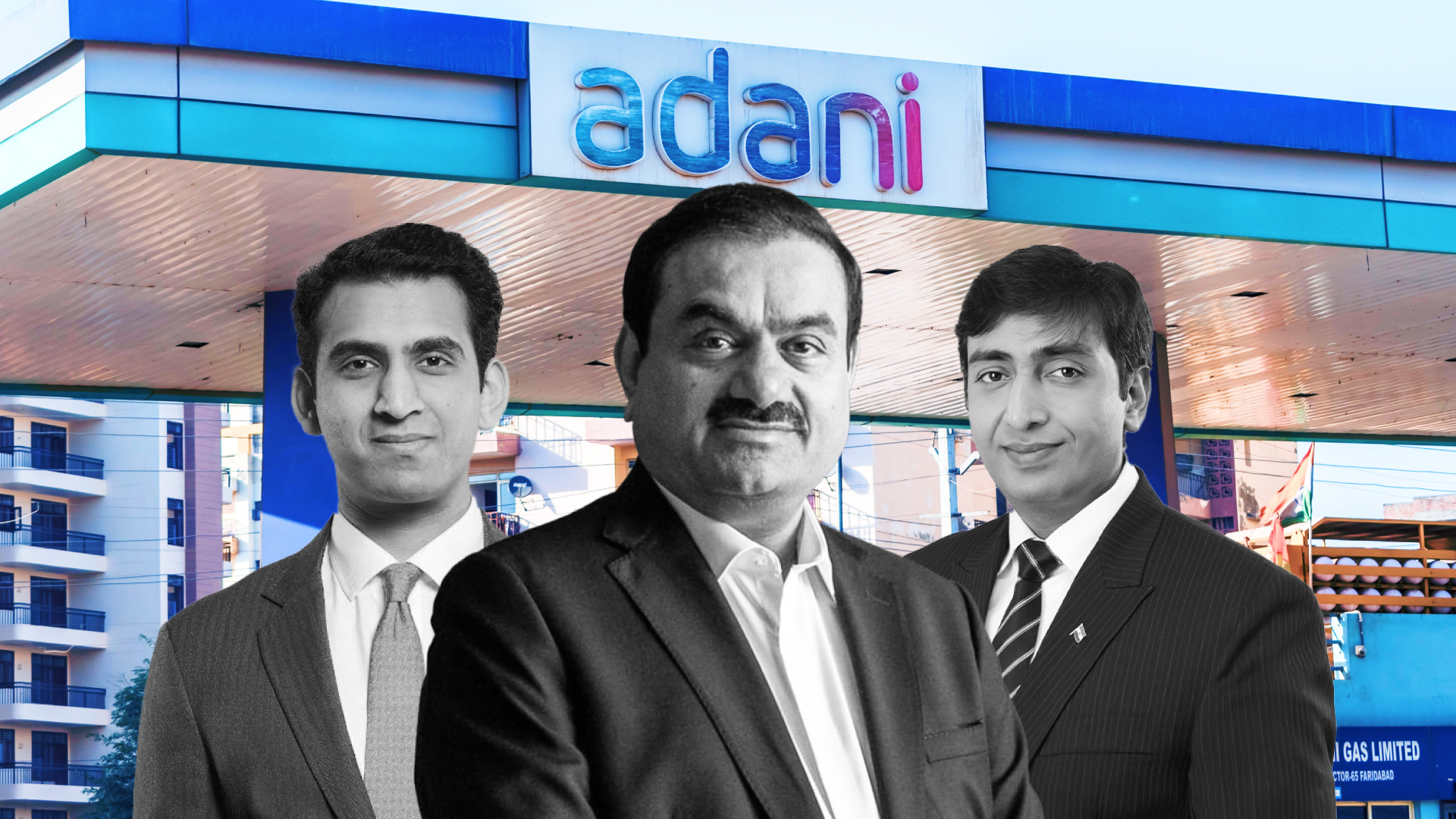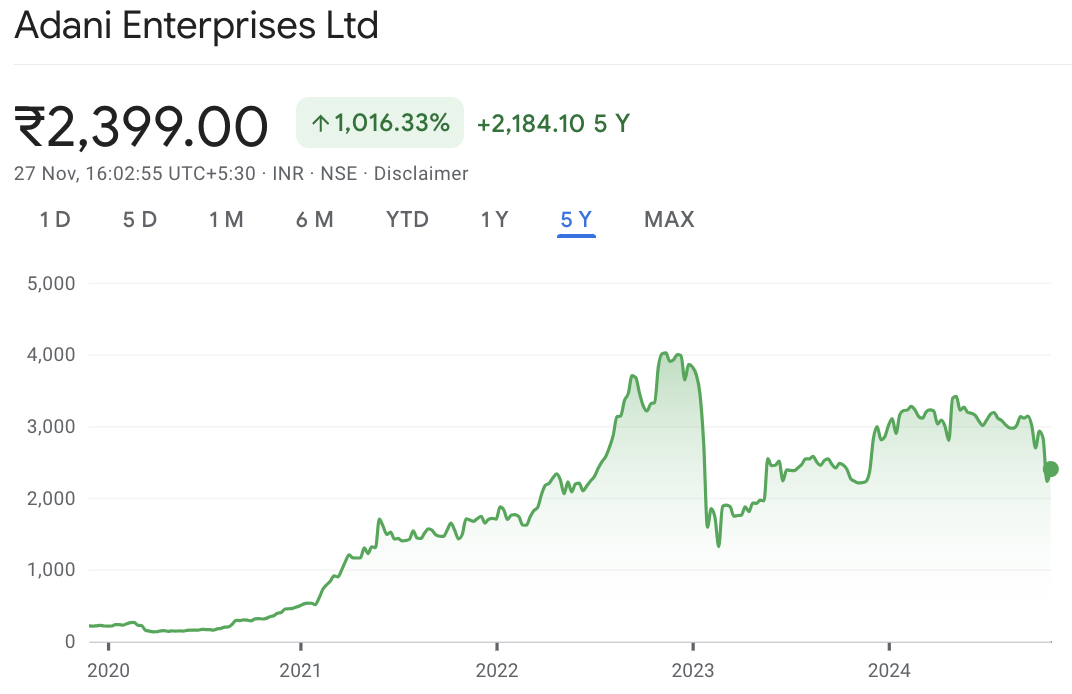10 reasons why the crisis facing Gautam Adani, Asia's second richest man, may not be over yet
If you're purely invested in Australian companies, there is a good chance you may have missed one of the biggest business stories in the world of late. But many other global investors have been watching the Adani Group bribery case like a hawk - especially in India where its chairperson Gautam Adani is also one of the country's most powerful and influential. The New York Times has even described Mr Adani as "in effect, an extension of India’s government."
Yesterday, Mr Adani and two subordinates highlighted in the report said they had been cleared of those bribery charges. The announcement came direct from a stock exchange filing, prepared by Adani Green Energy.
The men had been accused by American prosecutors of bribing Indian government officials in exchange for favourable terms on solar power contracts projected to bring in more than $US2 billion in profit.
But before you think this story is done, Plato Investment Management's Dr David Allen and his trademark red flags system have found nine additional issues (in addition to the bribery case) which explain why Adani Group's story may have yet further to run. If you're interested in a story of influence, power, and what that means for investors, this is a story I recommend reading from start to finish.

The Adani Group bribery case: A short summary
Last Wednesday (20 November), US prosecutors accused Gautam Adani, his nephew Sagar Adani (who runs the Adani Green Energy business), and five other executives of deliberately misleading international investors as part of a bribery scheme. It is the second major governance crisis to hit the company in less than two years and follows hot on the heels of a short report from Hindenburg Research which made headlines around the world.
The allegation suggested the three men "devised a scheme to offer, authorise, make and promise to make bribes payments to Indian government officials."
In their initial claim, US prosecutors said more than US$250 million in bribes were paid to people in the Indian government as part of the scheme, which was allegedly concealed from investors while they were raising capital.
But, as I noted in my introduction, Adani Group say the charges have been lifted. But the damage has already been done. Adani Group said that US$55 billion has been wiped from the market capitalisation of its 11 listed firms.
Why does this story matter?
The target of this charge nor the implications of this charge cannot be underestimated. Adani Group, builds and buys shipping ports, factories and power plants, often under state contract or licence. It operates airports and even owns a TV news channel. Adani Group's market capitalisation is up more than 1,000% in just the last five years alone.

Politically speaking, Gautam Adani is often perceived as having close ties to Indian Prime Minister Narendra Modi, with critics often suggesting Adani's rapid business growth is linked intimately with Modi's tenure of power.
The story has also had ramifications on other firms, like GQG Partners (ASX: GQG). Shares in the Australian-listed fund manager experienced a 19% selloff on Thursday, 21 November. While Mr. Adani was cleared of the charges, GQG’s stock has only recovered about half of its losses. On the same day, GQG attempted to reassure investors with a statement, emphasising:
“We note that, consistent with our portfolio construction guidelines, GQG portfolios are diversified, with over 90% of our clients' assets invested in issuers unrelated to the Adani Group.”
Despite this, Adani is one of GQG Partners' highest conviction stock picks and is considered one of CIO Rajiv Jain's biggest and most contrarian gambles of recent times.
But the charges have been lifted. So the story's over, right?

Not so fast. Dr Allen has found a slew of other red flags that still exist within the Adani Group despite the bribery charges being lifted. The following are all notes that Allen provided to us. Where it has been included, sources are hyperlinked to each main red flag.
Note: The Plato Global Alpha Fund (ASX: PGA1) holds neither long nor short positions on the Adani companies as it does not invest in emerging markets.
1) Auditors reporting three key concerns:
- Contingencies related to taxation and litigations: The company faces ongoing litigations and claims involving direct and indirect taxes, as well as other legal proceedings. Assessing provisions or contingent liabilities in these cases requires significant judgment due to the complexity and uncertainty involved.
Revenue recognition and adjustments for coal quality variances: The auditors emphasised the importance of accurately recognising revenue and making necessary adjustments for coal quality variances, which involve critical estimates. Inappropriate assessments could lead to misstatements in revenue.
- Measurement of coal inventory quantities: Given the substantial value of coal inventory, accurately measuring its quantity is crucial. The auditors pointed out that this measurement involves significant judgment and estimation, especially when assessing inventory at ports or yards.
2) Even the auditor itself is obscure: In May 2023, Shah Dhandharia & Co. LLP, a small Ahmedabad-based chartered accountancy firm, resigned as the independent auditor for Adani Enterprises and Adani Total Gas Ltd. This resignation followed concerns about the firm's capacity to audit such large conglomerates, as highlighted in the Hindenburg Research report.
3) Other Indian regulators have investigated Adani before: In October 2023, the NFRA [National Financial Reporting Authority in India] initiated an investigation into the audit firms associated with Adani Group's listed companies. This probe aims to assess the auditors' compliance with regulatory standards and their role in certifying the group's financial statements.
4) Deloitte, a far more well-known auditor, has also resigned in relatively recent times: In August 2023, Deloitte resigned as the auditor of Adani Ports & Special Economic Zone (APSEZ), citing concerns over transactions flagged in the Hindenburg report. Deloitte's inability to obtain sufficient information to address these concerns led to its departure.
5) Audit expenses are just 0.01% of the group's total revenues - which is objectively tiny.
6) Adani Group has seen a large increase in intangibles - "While not suggesting manipulation has occurred, there are examples of this elsewhere where it has been a sign of earnings manipulation e.g. capitalising costs, overstating asset valuations, and goodwill inflation," Allen said.
7) There is no independent chairperson - Gautam Adani is the chairman.
8) Related party transactions - Adani Group has been known to buy and sell goods from its subsidiaries and affiliated entities. The Securities and Exchange Board of India (SEBI) has already called the company out on this.
9) The alleged bribery case is, in itself, a high-impact governance event which is a red flag under Dr Allen's system.
10) Very high environmental intensity: The company has a very large environmental impact, relative to its revenues.
1 topic
2 stocks mentioned
1 contributor mentioned

